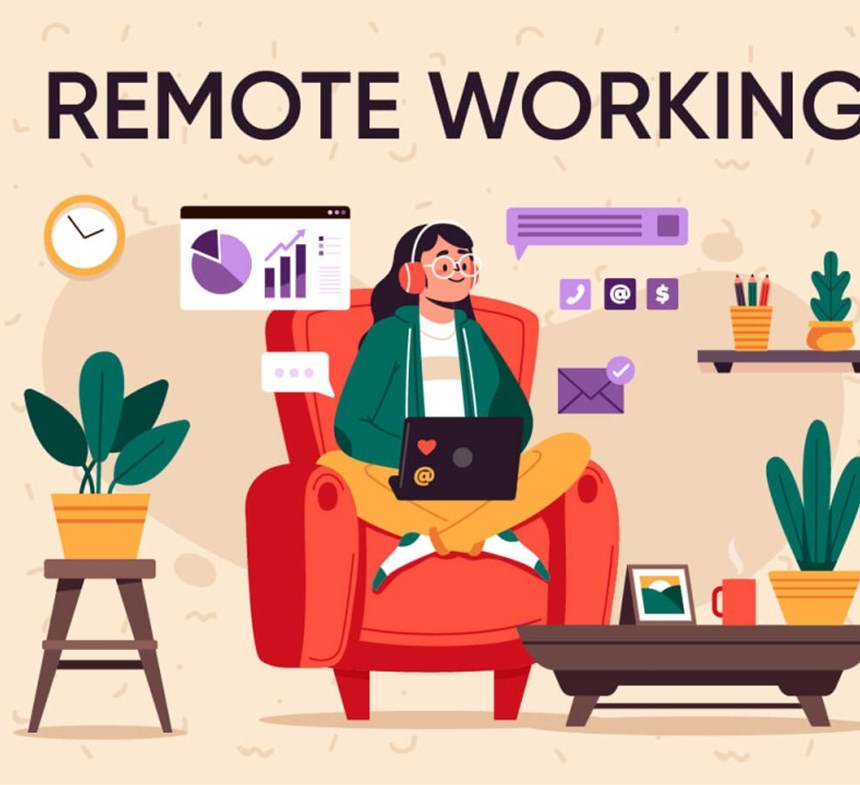Picture this: you’re sipping a coconut on the sunny shores of Pattaya, typing away in a trendy coworking space, and logging into meetings without a care in the world. Welcome to the life of a digital nomad! But wait—what does "remote-first" even mean for the companies that are offering remote work opportunities? And how does this all mesh with the flexibility digital nomads crave? Well, buckle up because we're diving into the world of remote-first companies—without the fine print and headaches.
According to Forbes, a hefty 16% of companies are now embracing the remote-first mentality. This means they offer fully remote contracts to the majority of employees—sounds like a dream for digital nomads, right? But, spoiler alert, it’s not quite as simple as working from anywhere you please. While the numbers are growing (12.7% of full-time U.S. employees are already remote, with that number expected to climb), there’s a bit more to this remote revolution than just packing your bags and setting up a laptop at a beachfront café in Pattaya.
Yes, the tech giants and IT companies are leading the charge, but now marketing, finance, health, and HR industries are also jumping on the remote bandwagon. But before you start dreaming of endless flexibility, let’s dive into the nitty-gritty of what it really means to be part of a remote-first company.
You’ve probably heard the term “Work From Anywhere” tossed around like it’s a golden ticket to freedom. But, as with most things in life, there’s a catch. Drumroll, please—you can work from home, a coworking space, or even your favorite café in Pattaya, but you’re still tied to your home country. Yup, that’s right: remote roles are typically associated with a specific country. You can’t just pack up and move to Bali for the year without making sure your tax residency and employment paperwork still check out.
Some companies are more flexible than others about this, but there’s usually a catch. You can move countries—sure—but expect to renegotiate that contract, especially if the cost of living is dramatically different. For example, if you swap New York for Spain, get ready for a potential pay cut. No “work from anywhere” when it comes to tax laws!
Are you planning to become a true digital nomad and bounce between Thailand, Vietnam, and Japan all year long? You might need to rethink that dream. Many remote-first companies put a limit on how much international travel you can do—usually capping it at about 90 days per country per year. Sounds like a lot, right? But keep in mind that if you venture beyond that, you could trigger tax issues or other legal entanglements, depending on where you’re working from. Some companies even create “approved” lists of countries you can travel to without causing a tax or legal headache. So, yes, you can technically hop between countries, but make sure your passport’s not your only form of identification when it comes to your company’s rules.
Remote work, but not that remote. While you can technically work from anywhere (within your home country), there’s still a sprinkle of in-person magic required by many remote-first companies. Some demand that employees come into the office a few days a quarter, while others expect in-person meetups or team-building events every so often. Let’s be real: it’s not all virtual high-fives and Slack emojis. If you love the freedom to work in your pajamas every day, this might be the one part of remote work that still feels a bit... well, like "work."
Okay, here's the plot twist: some companies that were all about remote-first during the pandemic are now dialing it back. Yep, some are requiring employees to come back to the office a couple of days a week. Talk about a bait and switch, right? So, while the remote-first trend is on the rise, there’s no guarantee your company won’t decide that “virtual-first” just isn’t working for them anymore. If you’re a digital nomad who thrives on flexibility, this is definitely something to consider before signing up for that fully remote role.
Curious about what remote-first policies actually look like in action? Well, let's take a peek at some companies that are rocking the remote-first life:
Airbnb: Yes, they offer full remote flexibility, but with a twist. You can work from anywhere in your home country, and travel internationally for up to 90 days a year. Perfect for a digital nomad who loves exploring new places without worrying about contracts.
Atlassian: Calling it “Team Anywhere,” Atlassian allows remote work but with some structure. They let you live in one of 13 countries and take short work-from-elsewhere breaks.
Shopify: A digital-first company, Shopify lets employees work from anywhere (as long as they’re still in a supported country) and gives you 90 days to work in any timezone.
Zillow: For 85% of their U.S. employees, it’s full flexibility. Just make sure you’re still in the U.S. and can attend the occasional team event.
The “Work From Anywhere” dream is close, but not 100% there. Companies want to give employees flexibility, but tax laws, legalities, and good old-fashioned office culture are still influencing the remote landscape. If you’re a digital nomad in Pattaya (or anywhere else), it’s vital to read between the lines of remote work policies. Yes, it’s possible to live the nomadic life, but it’s also important to stay compliant with your company’s rules.
In the end, the world of remote-first companies is full of opportunity—just make sure you’re prepared for the fine print. And who knows? Maybe your next Zoom call will be from a sun-soaked coworking space in Pattaya! 🌞
